HVAC ducts are the unsung heroes of modern spaces. They quietly ensure consistent airflow, temperature control, and clean air throughout homes and commercial buildings. Once hidden behind walls or ceilings, these ducts take center stage in modern trends.
Leaving them visible or thoughtfully integrating them into a space creates a raw, open aesthetic that feels intentional and visually striking. This trend adds character and highlights the beauty of combining functionality with design.
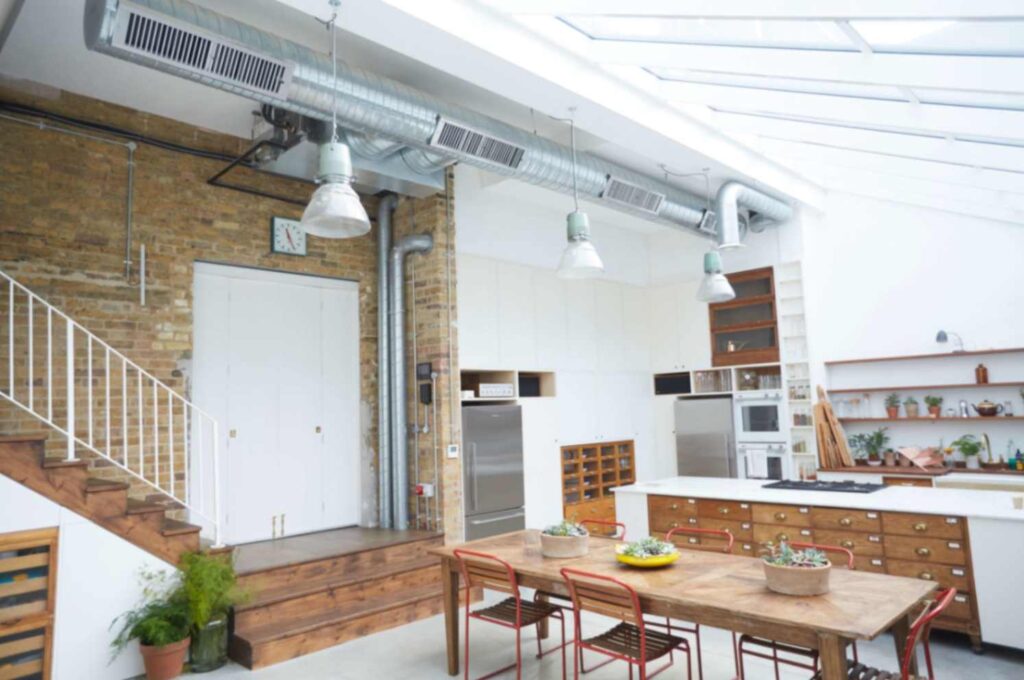
source – images.squarespace-cdn
The industrial design trend originates from the raw, utilitarian aesthetics of old factories and warehouses, where exposed beams and pipes were visible out of necessity. Today, this style is evident in modern homes, offices and retail spaces, where exposed HVAC ducts add a bold and contemporary edge. Their raw texture and linear structure bring character to a room and create a sense of openness and intentional design.
Beyond the visual appeal, exposed intake screens offer practical benefits, such as making HVAC systems more accessible for routine inspection and cleaning. To maintain a polished, intentional look, designers often use matte finishes to reduce glare and emphasize clean, straight lines with carefully planned symmetry.
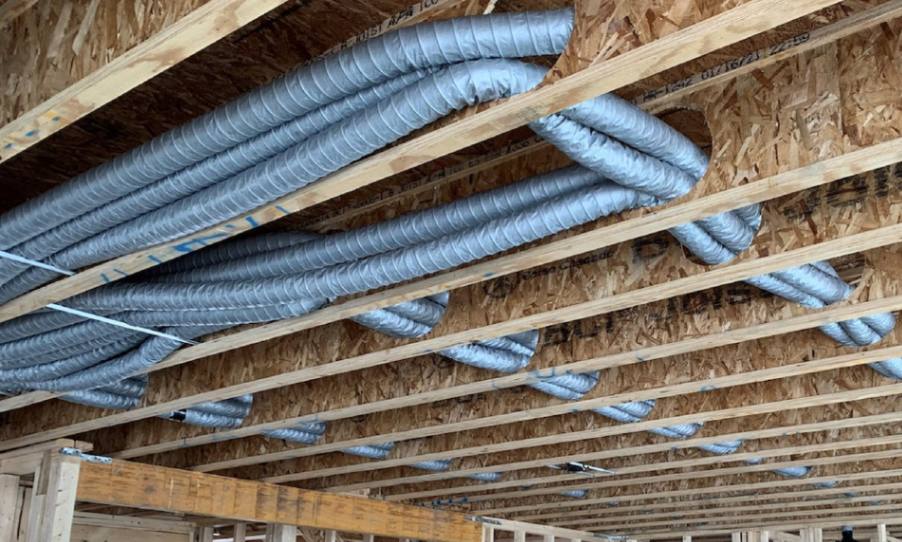
source – pressablecdn
Decorators get creative by embedding HVAC ducts into beams or alcoves, which allows them to blend seamlessly into a space’s overall architecture. This approach transforms them from utilitarian features into elements that complement the room’s style. For a harmonious look, they can pair pipes with natural materials like wood, sleek metals, or textured exposed brick to enhance visual cohesion and add warmth.
Decorative panels are another clever option. They frame ducts to add a stylish layer while keeping them accessible for maintenance. Designers can integrate them into shelving units in spaces like living rooms or offices to combine function and design effortlessly. This balances practicality and aesthetics, creating a polished look.
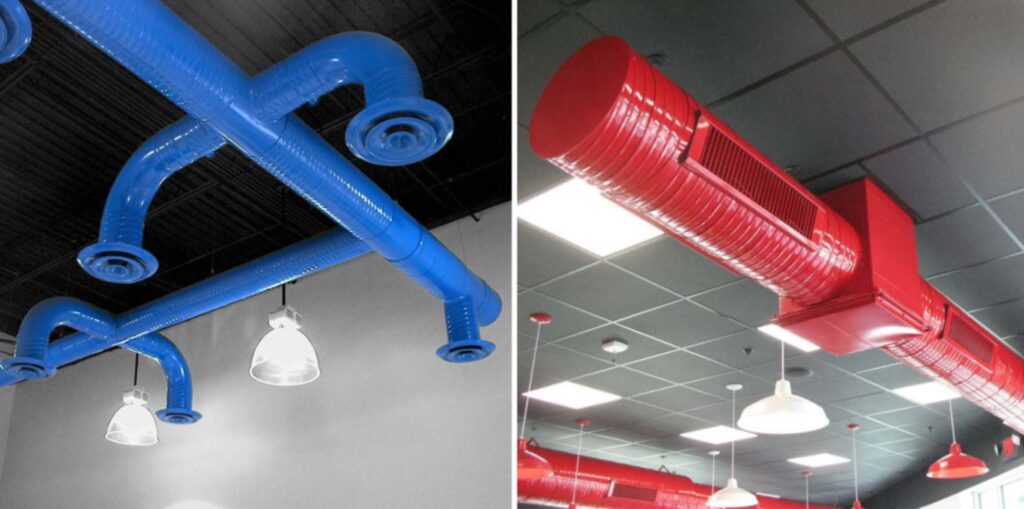
source – li-hvac
Painting HVAC ducts transforms them into striking features that complement or contrast a room’s color scheme. In modern, playful spaces, bold colors like vibrant reds or deep blues can add personality and energy, turning them into statement pieces. For a more understated look, muted tones like soft grays or earthy neutrals allow pipes to blend seamlessly into the room for a clean, cohesive finish.
Custom fabric ductwork also offers unique opportunities, with options for various colors, shapes and sizes to fit any design aesthetic. To achieve a polished result, it’s important to use heat-resistant paint, thoroughly clean and prime the surface beforehand, and coordinate the chosen color with the existing palette.
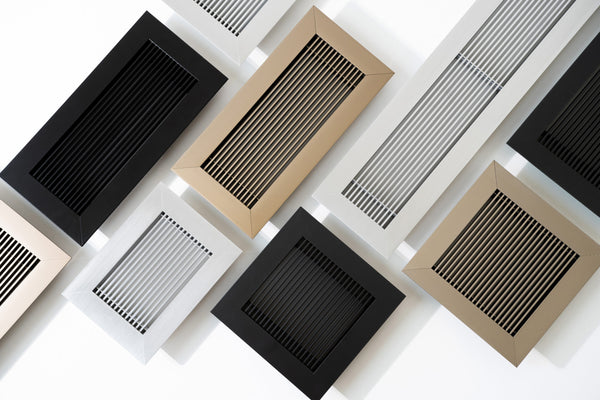
source – kulgrilles
Stylish covers and enclosures offer a sleek way to conceal HVAC vents while maintaining accessibility and functionality. Solutions like wood slat covers add natural warmth and texture, while decorative grilles bring an elegant architectural touch that enhances the room’s aesthetic. Custom soffits are another go-to option because they allow ducts to blend seamlessly into the ceiling or walls for a clean look.
For spaces with low ceilings, painting everything from skirting to coving in one continuous shade creates a visual trick that makes ceilings appear higher and vents less noticeable. However, it’s essential to balance aesthetics with airflow efficiency, ensuring enclosures are well-ventilated and ducts remain accessible for maintenance.
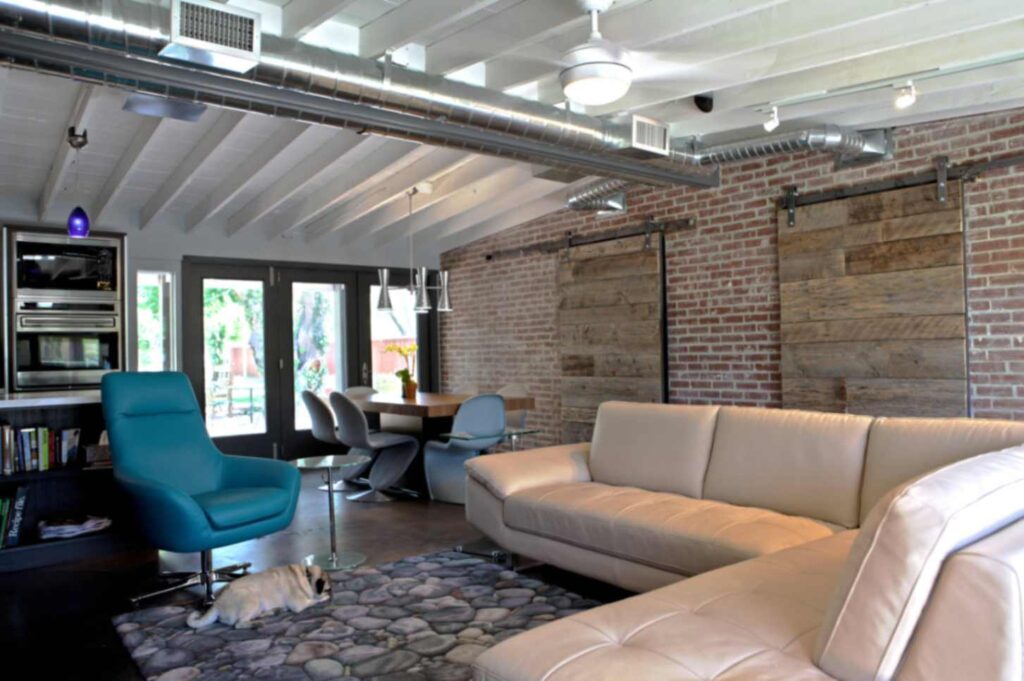
source – hzcdn
HVAC ducts can become opportunities to showcase creativity, add character and elevate a space’s aesthetic. Rethinking HVAC integration can turn functional elements into stylish features that merge practicality with standout design.
Leave a comment